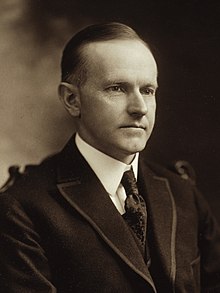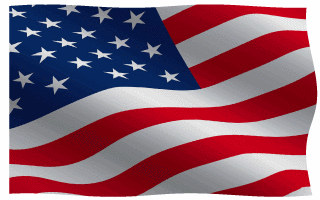In the early morning hours of August 3rd, 1923, in the unincorporated hamlet of Plymouth Notch, Vermont, the local justice of the peace and notary public John Coolidge lit a small kerosene lamp in the small front parlor of his home. The lamp provided critical illumination for an epochal event, as the little abode was without electricity or telephone, highlighting two of John Coolidge’s most cherished elements of his life, the family bible, and the hand and face of his son Calvin. Just a few minutes earlier, a knock on the door had awakened the family, and a courier provided the news that the twenty second president of the United States Warren Harding had died the previous day of a heart attack. The extreme remoteness of Plymouth Notch and the Coolidge’s resistance to modern contrivances such as a telephone led to the unique circumstances in the middle of the night, but John Coolidge understood his duty as a justice and an American citizen, and proudly delivered to his son Calvin, the Vice President, the oath of office as the twenty third President of the United States.
Such humble beginnings for an American Presidency are alien to our modern sensibilities. Presidents at this time come from elite families, elite universities, and often publicly acquired wealth. Coolidge was from the other America, the rural backwaters that are derided by elites who have fallen in love with experts and pedigrees. His humble circumstance imbued his Presidency with corresponding humility in his approach and his governance, confusing the academic custodians who can not bring themselves to interpret such characteristics as representing great leadership. Coolidge is routinely derided by liberal academics as “ineffective and reactionary”, and is often placed in the lower half of Presidential rankings. Yet, such backwaters have produced leaders such as Jackson, Lincoln, Coolidge, and Truman. One could argue the guardianship of the American Experiment have been safest in the hands of such men.
July 4th, the accepted inauguratory day of our nation’s founding, has witnessed the death of three Presidents, Adams, Jefferson, and Monroe, but the birth of only one, Calvin Coolidge, on July 4th, 1872. Independence Day forever fit Calvin Coolidge better than most Presidents. Coolidge’s preparatory life and subsequent Presidency were intimately true to the founding documents, and he did not inject power from his elected position where power had not been placed by the founders. His Presidency presided over six years of some of the most prosperous years of the United States through the so called roaring 20’s, achieving massive prosperity and dramatic modernization of the country, essentially by staying out of the way. His nuanced understanding of the perfectly woven powers of the Constitution , to his way of thinking, prevented him from performing actions that were not his to perform. His reticence was legendary to the point where he was derided by the press with the moniker, Silent Cal. Oft told stories describe this unique Presidential attribute to a tee. The highly educated and articulate Coolidge refused to comment where he felt his opinion was not appropriate. It was said that President Coolidge was “silent in five languages”. Once at a Washington dinner party, a chatty guest placed next to him to draw him out commented to Coolidge, ” Mr. President, I made a bet today that I could get more than two words out of you.” Coolidge blithely replied, “You lose.”
Coolidge’s stand back demeanor and philosophy in no way defined his fertile and intellectual grasp of multiple complex subjects, particularly the circumstances and basis for the American Experiment. Coolidge sagely recognized and articulated elegantly the unique marriage of the genius of the founders’ documents to the success of the United States and remained principled and confident in his approach and leadership as a result. The paucity of spoken words belied an astute intellect and a deep and articulate capability for discourse when he felt the need. He expounded with clarity and conviction unpopular opinions of the time on female suffrage, black and indigenous people’s civil rights, and the obligations of the successful citizen to give back and care for those less fortunate. His comments particularly on race for the time bordered on radical, but he felt no compunction to hold back because he saw the Declaration of Independence and Constitution explicit in foundationally supporting his views.
The best example of underestimating President Coolidge is likely found in one greatest documents ever produced by a President, Calvin Coolidge’s speech on the 150th Anniversary of the Declaration of Independence, given July 5th, 1926. The entire speech is worth many reads as it is magnificent prose, and so beautifully argued as to put more famous presidential addresses to shame. In today’s historical vacuousness, there is a clumsy and ignorant clamor to see the amazing events of 1776 and the Declaration of Independence as a reactionary time of men consumed by their prejudices and possessions. As I said, ignorant. Coolidge weaves the careful precedents and revolutionary and radical concepts that make the Declaration not a document of its time but a timeless testimonial as prescient and relevant to our present and future as any peon to the past. Witness Coolidge’s calm but impassioned logic in the below excerpt, as we wander aimlessly to find our core among the superficial post-modern babble that passes for educated rhetoric on this July 4th, 2021:
“About the Declaration there is a finality that is exceedingly restful. It is often asserted that the world has made a great deal of progress since 1776, that we have had new thoughts and new experiences which have given us a great advance over the people of that day, and that we may therefore very well discard their conclusions for something more modern. But that reasoning can not be applied to this great charter. If all men are created equal, that is final. If they are endowed with inalienable rights, that is final. If governments derive their just powers from the consent of the governed, that is final. No advance, no progress can be made beyond these propositions. If anyone wishes to deny their truth or their soundness, the only direction in which he can proceed historically is not forward, but backward toward the time when there was no equality, no rights of the individual, no rule of the people. Those who wish to proceed in that direction can not lay claim to progress. They are reactionary. Their ideas are not more modern, but more ancient, than those of the Revolutionary fathers.”
God Bless this great nation on its birthday, a nation that from its birth has time and again produced unique souls in people such as Frederick Douglasses and Calvin Coolidges in equal bursts of brilliance , that stand athwart the glassy eyed dimness of those who can not see what they have so uniquely been given.
Happy Birthday, America. And stand tall. Don’t let anyone try to take our beautiful idea down.



What a great reflection for this July 4th! Once again, you’ve made history come alive, highlighting someone overlooked, dropping the reader right into his life with the first sentence, and revealing what’s timeless. It makes me want to read further! What DID he say in regards to the issues of his time (which mirror our own?) I’m all for a humble, but strong, leader. The reluctant leader who only takes the job because the people want him. A government for the people, by the people—from the people, which can only work with a moral, educated population.
Had never heard the “silent in five languages” and “you lose” antidotes. Hilarious. And smart. Especially compared to a President who walks around with flash cards.
The excerpt you included was profound and calls to mind a quote I read the other day from Judge Learned Hand to the effect of, “If liberty isn’t in the hearts of men and women, no Constitution, courts, or Bill of Rights will achieve it.” Yes, may we stand tall and not let these great ideas be torn down by those who didn’t learn to value them.
Oh, and I love the waving flag. : )
Thank you for the education!!!! Enjoyed the read.